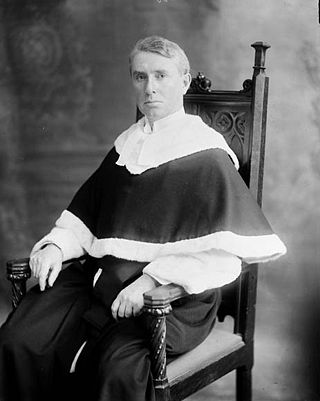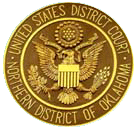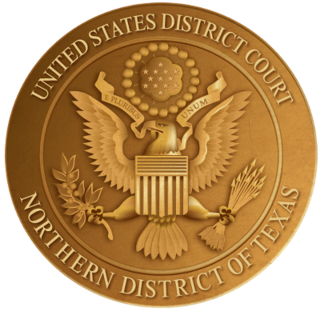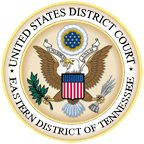Related Research Articles

The United States Court of Appeals for the Eighth Circuit is a United States federal court with appellate jurisdiction over the following United States district courts:

The United States Court of Appeals for the Second Circuit is one of the thirteen United States Courts of Appeals. Its territory covers the states of Connecticut, New York, and Vermont, and it has appellate jurisdiction over the U.S. district courts in the following federal judicial districts:

The United States Court of Appeals for the Third Circuit is a federal court with appellate jurisdiction over the district courts for the following districts:

The United States Court of Appeals for the Fifth Circuit is one of the 13 United States courts of appeals. It has appellate jurisdiction over the U.S. district courts in the following federal judicial districts:

The United States Court of Appeals for the Sixth Circuit is a federal court with appellate jurisdiction over the district courts in the following districts:

The United States Court of Appeals for the Seventh Circuit is the U.S. federal court with appellate jurisdiction over the courts in the following districts:

The United States Court of Appeals for the Tenth Circuit is a federal court with appellate jurisdiction over the district courts in the following districts:

The United States Court of Appeals for the Eleventh Circuit is a federal appellate court over the following U.S. district courts:

Sir Lyman Poore Duff,, PC(UK) was a Canadian lawyer and judge who served as the eighth Chief Justice of Canada. He was the longest-serving justice of the Supreme Court of Canada.

The United States District Court for the Northern District of Oklahoma is a federal court in the Tenth Circuit.

The United States District Court for the Eastern District of Washington is the federal district court whose jurisdiction comprises the following counties of the state of Washington: Adams, Asotin, Benton, Chelan, Columbia, Douglas, Ferry, Franklin, Garfield, Grant, Kittitas, Klickitat, Lincoln, Okanogan, Pend Oreille, Spokane, Stevens, Walla Walla, Whitman, and Yakima.

The United States District Court for the Western District of Washington is the federal district court whose jurisdiction comprises the following counties of the state of Washington: Clallam, Clark, Cowlitz, Grays Harbor, Island, Jefferson, King, Kitsap, Lewis, Mason, Pacific, Pierce, San Juan, Skagit, Skamania, Snohomish, Thurston, Wahkiakum, and Whatcom. Its courthouse, built in 2004, is located at 7th and Stewart in Seattle.

The United States District Court for the Northern District of Texas is a United States district court. Its first judge, Andrew Phelps McCormick, was appointed to the court on April 10, 1879. The court convenes in Dallas, Texas with divisions in Fort Worth, Amarillo, Abilene, Lubbock, San Angelo, and Wichita Falls. It has jurisdiction over 100 counties in the northern and central parts of the U.S. state of Texas.

Edward John Leavy was an American jurist who served as a judge of the United States Court of Appeals for the Ninth Circuit, the United States Foreign Intelligence Surveillance Court of Review, and the United States District Court for the District of Oregon.
The United States District Court for the Southern District of Mississippi is a federal court in the Fifth Circuit with facilities in Gulfport, Hattiesburg, Natchez, and Jackson.

The United States District Court for the Western District of Oklahoma is a federal court in the Tenth Circuit.

The United States District Court for the Eastern District of Arkansas is a federal court in the Eighth Circuit.

The United States District Court for the Eastern District of Tennessee is the federal court in the Sixth Circuit whose jurisdiction covers most of East Tennessee and a portion of Middle Tennessee. The court has jurisdiction over 41 counties, which are divided among four divisions. Based in Knoxville, Tennessee, it maintains branch facilities in Chattanooga, Tennessee; Greeneville, Tennessee; and Winchester, Tennessee.
References
- ↑ Federal Court of Canada, About the Court Archived 2013-06-12 at the Wayback Machine
- 1 2 3 Fine, Sean (8 September 2023). "How Canada's longest-serving judge made 'Campbelling' part of the legal lexicon for refugee cases". The Globe and Mail. Retrieved 30 October 2023.
He was once Canada's youngest judge and he stayed until he became the longest-serving